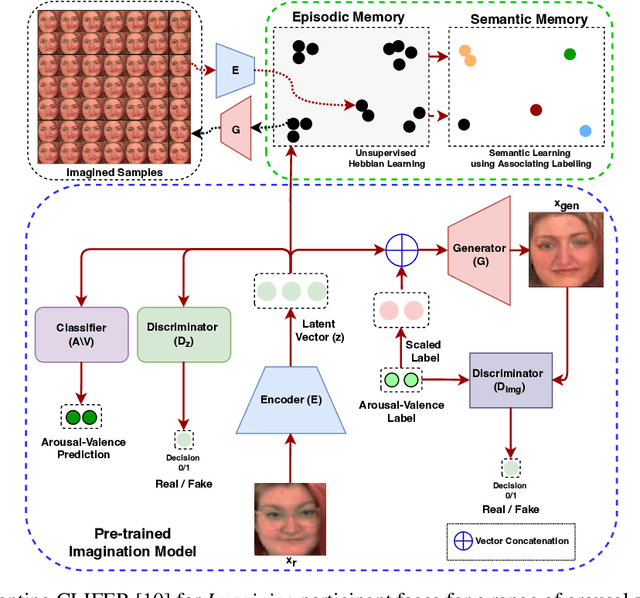Continual Learning for Affective Robotics: A Proof of Concept for Wellbeing
Paper and Code
Jun 22, 2022



Sustaining real-world human-robot interactions requires robots to be sensitive to human behavioural idiosyncrasies and adapt their perception and behaviour models to cater to these individual preferences. For affective robots, this entails learning to adapt to individual affective behaviour to offer a personalised interaction experience to each individual. Continual Learning (CL) has been shown to enable real-time adaptation in agents, allowing them to learn with incrementally acquired data while preserving past knowledge. In this work, we present a novel framework for real-world application of CL for modelling personalised human-robot interactions using a CL-based affect perception mechanism. To evaluate the proposed framework, we undertake a proof-of-concept user study with 20 participants interacting with the Pepper robot using three variants of interaction behaviour: static and scripted, using affect-based adaptation without personalisation, and using affect-based adaptation with continual personalisation. Our results demonstrate a clear preference in the participants for CL-based continual personalisation with significant improvements observed in the robot's anthropomorphism, animacy and likeability ratings as well as the interactions being rated significantly higher for warmth and comfort as the robot is rated as significantly better at understanding how the participants feel.
 Add to Chrome
Add to Chrome Add to Firefox
Add to Firefox Add to Edge
Add to Edge